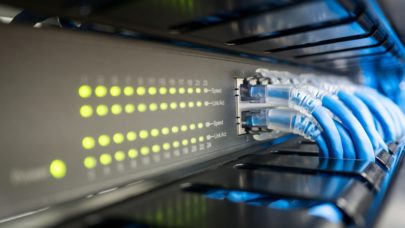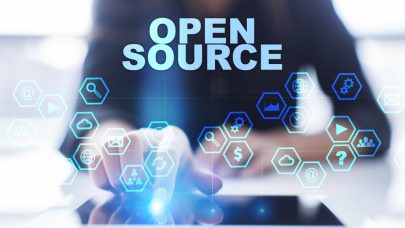RENO, Nev., Jan. 4, 2024 — Sylabs, a provider of tools and services for performance-intensive container technology, has released its predictions for the industry’s landscape in 2024. The company forecasts significant advancements in key areas such as performance portability, artificial intelligence (AI) and AIOps workload management, adherence to FAIR principles, confidential computing, and container security.
Adapting DevOps to the AI Revolution: The Performance Portability Paradigm
With the rapid evolution of AI and machine learning (ML), performance portability will become increasingly crucial for DevOps teams. The main driver is maintaining application efficiency across diverse hardware, particularly as workloads extend from cloud to edge and high-performance computing (HPC) environments. This strategic imperative becomes pivotal as DevOps teams navigate the rise of specialized AI hardware from industry leaders and startups, further complicating this landscape for DevOps managers.
“Performance portability is increasingly a strategic necessity, especially in AI and ML,” said Keith Cunningham, VP of Strategy at Sylabs. “Developers, faced with diverse hardware, must ensure application efficiency across platforms. Open Container Initiative (OCI)-compliant computing container technologies, like SingularityCE, bridge the gap between HPC and IT DevOps. This integration is key to leveraging AI’s full potential. By harmonizing the power and precision of HPC with the agility and automation of DevOps practices, developers can facilitate a more seamless, efficient, and innovative development process, crucial for adapting to the rapidly evolving technological landscape.”
Charting the AIops Evolution: A Leap Towards Advanced Containerization
Anticipated to progress at a steady 25% Compound Annual Growth Rate (CAGR), the AIops field is undergoing a transformation fueled by diverse factors, notably the modernization of applications through containerized software and the integration of more advanced and sophisticated AI technologies. Within this landscape, the pivotal role played by containerization is evident, as AIops practitioners strive to enhance system scalability, reliability, and efficiency. Advanced container solutions, adept at functioning in diverse environments with significant access and security requirements, are vital for ensuring isolation and consistency. These aspects are critical for efficiently scaling AI operations and ensuring robust failure recovery mechanisms.
In this evolving scenario, AIops practitioners leverage machine learning (ML) algorithms to link incidents with business impacts, improving predictive analytics. This strategic approach leads to quicker and more effective IT decision-making, enabling the management and automation of complex systems with increased efficacy.
Looking ahead to 2024, a significant milestone is expected with the integration of generative AI by AIops software vendors. This technological advancement in AIops is poised to accelerate its adoption and introduce more sophisticated and responsive operational capabilities, ultimately elevating Service Level Agreement (SLA) adherence. The increasing preference among software developers for containerization in AIops applications reflects a broader industry trend towards secure, scalable, and efficient deployment of AI-driven operations.
“We foresee a revolution in AIOps driven by advanced containerization and AI technologies,” said Cunningham. “This integration transforms IT operations, enhancing scalability and security and significantly boosting operational efficiency. Containerization will be a cornerstone in this new era, enabling AIOps to handle the increasing complexity of modern IT systems with greater agility and precision.”
Collaboration and Innovation: FAIR Principles Meet Modern AI Research
Drawing inspiration from scientific computing, AI researchers are poised to align the AI landscape more closely with the principles of Findability, Accessibility, Interoperability, and Reusability. This alignment, driven by advancements in computing container technologies, is anticipated to cultivate heightened collaboration within groups and organizations. The result will substantially improve the distribution and peer review of containerized AI workflows and their associated datasets. Adopting these principles will enhance the efficiency, integration, and transparency of AI research, foster collective improvements, and develop more resilient AI applications.
Furthermore, the standardization of AI workflows through containerization is poised to tackle the pervasive ‘works on my machine’ issue, helping to establish a more consistent experience across diverse computational environments. This move is set to bolster reproducibility and reliability in AI models, mirroring the advancements achieved in FAIR scientific computational workflows. This practice is expected to improve the scalability and efficiency of AI operations, particularly among those leveraging container platforms tailored for performance-intensive environments.
Confidential Computing: The Next Leap in Container Security
Sylabs foresees a growing demand for advanced security measures in containerized environments, focusing on protecting sensitive data during its use within containers. Confidential Computing emerges as a critical player in this area, uniquely securing data in use by isolating it within secure areas of the processor’s architecture, designed specifically for heightened data protection. This approach complements traditional security measures for data at rest and in transit and mitigates risks associated with memory access and the execution environments within containers.
“We anticipate a shift towards more secure and efficient container technology, notably through integrating Confidential Computing solutions into existing workflows,” said Cunningham. “These integrations will enhance security while maintaining system accessibility and functionality. Confidential Computing will become a vital, forward-looking component in modern container security strategies.”
Shift Towards Next-Generation Container Solutions for Data-Intensive Computing
In 2024, the industry is set to confront a crucial challenge — traditional enterprise container solutions are often insufficient for the demands of advanced, performance-intensive computing environments, such as AI applications. This need is particularly true in shared environments, where security and access become critical, prompting a shift towards container workflows that integrate containers uniquely tailored for large-scale, data-rich environments. These sophisticated environments, characterized by high computational needs and complex data processing, necessitate blending container technologies to overcome some of the technical gaps in traditional offerings.
“There’s a notable surge in interest in Singularity containers from organizations facing the intricate demands of AI and data-intensive computing,” said Cunningham. “Singularity is specifically engineered to tackle the scalability and complexity challenges inherent in modern scale-out computing. It has undergone significant evolution, driven by community-led refinements, and now integrates seamlessly with established OCI workflows, offering scalability, robust security, and enhanced efficiency for demanding applications. Additionally, its enhanced interoperability has elevated performance across diverse computing environments and broadened its adaptability to various workloads, aligning seamlessly with various high-level orchestration and management systems. We anticipate further growth as more companies turn to Sylabs for solutions that elevate performance and security in their systems, achieving these advancements without the need for disruptive workflow overhauls.”
About Sylabs
Sylabs is the global leader in providing professional tools and services for high-performance container runtime technology. Sylabs makes high-performance computing more accessible to researchers, scientists, and engineers using Singularity, the most advanced open-source container runtime technology for performance-intensive applications and environments. As the most active contributor to the Singularity ecosystem, through both the community edition and Sylabs’ enterprise-supported and professional implementations, Sylabs is dedicated to enabling cutting-edge research and facilitating rapid scientific discovery to solve some of humanity’s most significant challenges. For more information about Singularity runtime technology, including SingularityCE (Community Edition), Singularity Container Services, SingularityPRO, and Singularity Enterprise, visit https://www.sylabs.io.
Source: Sylabs


























































